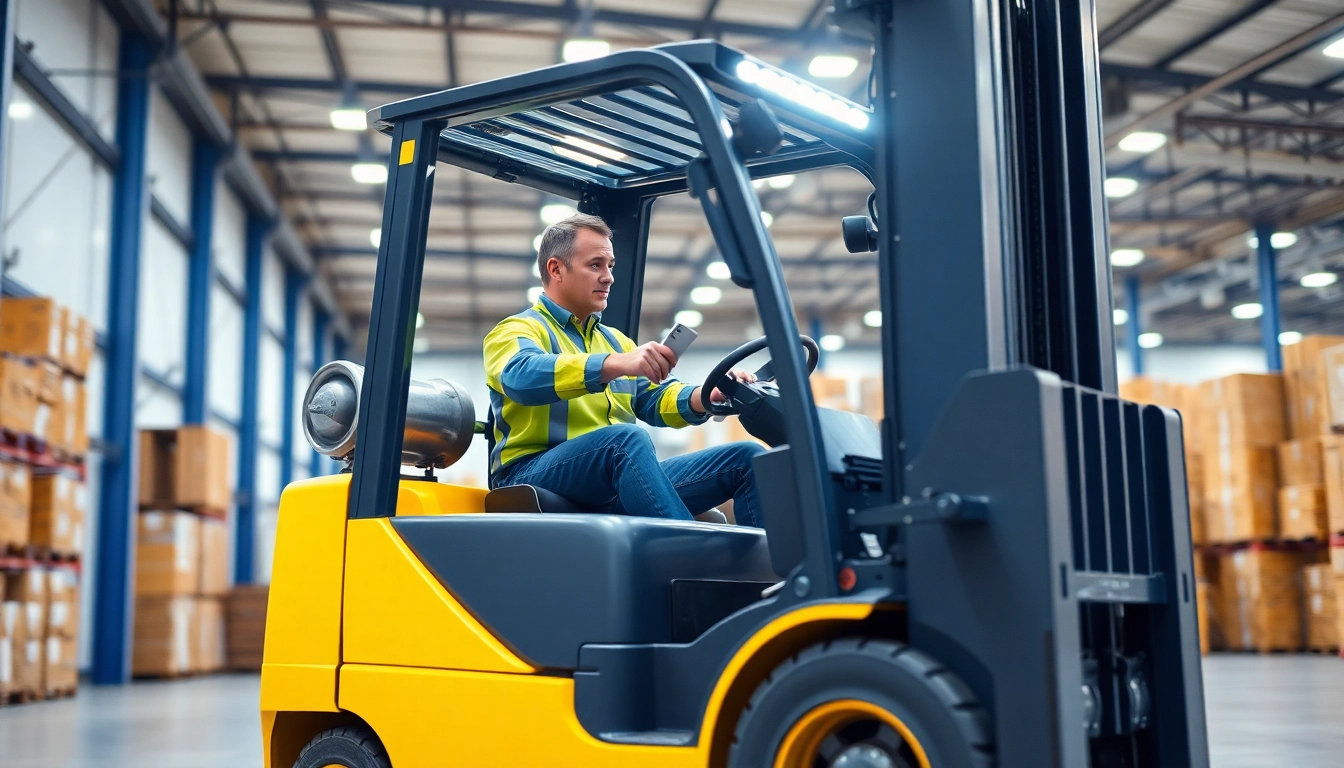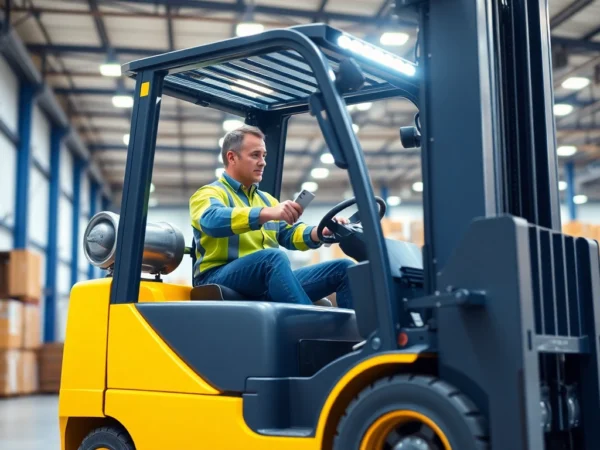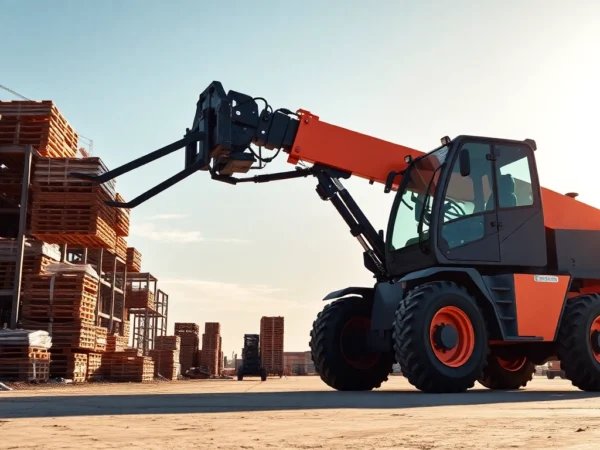Comprehensive Guide to forklift rental: Boost your business productivity effortlessly
Introduction to Forklift Rental: Benefits and Key Considerations
In today’s fast-paced industrial and logistics sectors, efficient material handling is vital for maintaining productivity and competitiveness. Among the key tools enabling this efficiency are forklifts—versatile machines designed to lift, move, and stack heavy loads with precision. As businesses seek flexible, cost-effective solutions, forklift rental has become an increasingly popular choice, especially within the UK market. Renting forklifts allows enterprises of all sizes to access high-quality equipment without the burden of ownership, leading to enhanced operational agility and financial management.
Whether operating a warehouse, construction site, manufacturing plant, or distribution center, selecting the right forklift rental strategy requires an understanding of the advantages, available options, and practical considerations. This comprehensive guide explores the multifaceted aspects of forklift rental, equipping you with the knowledge to optimize your material handling operations effectively.
Understanding the Advantages of Renting Forklifts
Cost-Efficiency and Budget Flexibility
One of the most compelling reasons for choosing forklift rental is the significant cost savings. Unlike purchasing, which involves substantial upfront capital investment, rental agreements convert capital expenditure into predictable operational expenses. This allows businesses to allocate resources more effectively, avoid depreciation costs, and reduce maintenance overheads. Additionally, rental costs often include maintenance and service, eliminating unexpected repair expenses and downtime.
Access to a Wide Range of Equipment
Rental providers offer a diverse fleet of forklifts suited for various applications, including electric, LPG, diesel, compact, and heavy-duty models. This diversity ensures that companies can select machinery tailored to their specific operational needs, whether for short-term projects or long-term deployment. Moreover, rental agreements often provide options to upgrade or switch equipment, maintaining operational flexibility.
Up-to-Date Technology and Equipment Maintenance
Maintaining modern, efficient machinery can be challenging and costly. Rental companies regularly update their fleets, ensuring clients have access to the latest safety features and technological improvements. Professional maintenance included in rental agreements guarantees machinery operates at optimal efficiency, reducing breakages and prolonging equipment lifespan.
Scalability and Flexibility for Business Growth
Business demands fluctuate, and rental arrangements can easily accommodate this variability. During peak periods or expansion phases, companies can quickly scale their fleet up or down without the logistical and financial complexities associated with ownership. This agility helps prevent bottlenecks and supports sustained growth.
Mitigation of Depreciation and Obsolescence Risks
Ownership entails risks of depreciation and technological obsolescence, especially with fast-evolving equipment standards for safety and emissions. Renting shifts these risks to the rental provider, enabling companies to always utilize compliant, modern machinery without worrying about asset depreciation or resale values.
Types of Forklifts Available for Rent in the UK
Electric Forklifts
Electric forklifts are ideal for indoor applications, offering zero emissions, quieter operation, and lower maintenance costs. They are perfect for warehouses, retail stores, and environments prioritizing sustainability. Advances in battery technology have extended operational hours, making electric models more efficient for continuous workflows.
LPG (Liquefied Petroleum Gas) Forklifts
LPG forklifts strike a balance between indoor and outdoor use, providing cleaner combustion than diesel models. They are suitable for factories with good ventilation, offering versatility and faster refueling compared to electric options.
Diesel Forklifts
Best suited for outdoor applications with heavy-duty loads, diesel forklifts deliver higher power and durability. They are often employed on construction sites, docks, and in industrial environments where rugged performance is essential.
Specialized Forklifts
- Reach Trucks: Designed for high racks and warehouse stacking, offering superior maneuverability in tight spaces.
- Telehandlers: Reach higher and move bulkier loads, suitable for construction and agricultural sectors.
- Side Loaders and Pallet Trucks: For specific material handling needs, providing tailored solutions.
Selection Tips
Choosing the right forklift depends on operational scope, load capacity, environment, and duration. Consulting with rental providers can help assess your needs and ensure optimal equipment selection.
Assessing Your Business Needs for Optimal Forklift Rental Choices
Evaluating Load Weights and Dimensions
The first step involves analyzing the typical loads, including weight and dimensions. This information dictates the required lifting capacity and forklift size.
Understanding Operating Environment
Indoor or outdoor use greatly influences the choice of power source (electric vs. diesel/LPG). Environmental factors such as ventilation, floor surfaces, and space constraints also impact suitable machinery.
Determining Rental Duration and Frequency
Short-term rentals suit project-based needs, while long-term agreements are more economical for ongoing operations. Evaluate your project timelines and maintenance capacity when planning rental periods.
Special Features and Attachments
Consider if additional attachments like forks, clamps, or rotators are necessary for your tasks, and select providers who offer such options.
Budget and Cost-Effectiveness
Align your equipment needs with your financial constraints, comparing rental packages and total cost of ownership versus rental costs over time.
Choosing the Right Forklift Rental Provider in the UK
How to Evaluate Rental Companies and Their Equipment
Reliability, equipment quality, and industry reputation are vital. Look for providers with a comprehensive fleet, industry accreditations, and a track record of prompt service. Reading customer reviews and requesting references can offer insights into their reliability.
Factors Influencing Rental Costs and Service Agreements
Pricing varies based on equipment type, rental duration, and included services like maintenance and delivery. Transparent quotes and detailed contracts are essential to avoid hidden fees. Comparison shopping across multiple providers ensures competitive rates.
Importance of Customer Support and Maintenance Services
Efficient support minimizes downtime and operational disruptions. Choose providers who offer comprehensive maintenance, prompt repairs, and on-site support. Clear communication channels and flexible service options enhance overall satisfaction.
Additional Considerations
- Delivery and Pickup Services: Ensure timely delivery aligned with your schedule.
- Operator Training and Certification: Confirm whether training is provided for safety and efficiency.
- Insurance and Liability Coverage: Verify coverage to protect against accidents or damages.
Best Practices for Effective Forklift Rental Management
Scheduling Rentals to Match Project Timelines
Accurate planning prevents equipment shortages or idle periods. Coordinate rental start and end dates precisely with your project milestones.
Safety Protocols and Operator Training Requirements
Prioritize safety through comprehensive operator training, adherence to OSHA or UK safety standards, and regular safety audits. Well-trained operators reduce accidents and prolong equipment lifespan.
Tracking Equipment Usage and Optimizing Operational Efficiency
Implement tracking systems for utilization, maintenance, and fuel consumption. Data-driven insights facilitate informed decisions, enhance productivity, and reduce operational costs.
Managing Maintenance and Inspection
Establish routine inspections and preventive maintenance schedules. Clear accountability and documentation ensure compliance and early detection of issues.
Cost Analysis and Budgeting for Forklift Rental
Understanding Pricing Models and Hidden Fees
Rental rates can include hourly, daily, weekly, or monthly charges. Beware of additional costs such as delivery, pick-up, fuel surcharges, and late return fees. Clarify these details upfront.
Comparing Short-Term Versus Long-Term Rental Options
Short-term rentals offer flexibility for seasonal or one-off projects but may carry higher daily rates. Long-term contracts typically provide lower rates and guaranteed availability, suitable for ongoing operations.
Maximizing ROI with Strategic Rental Planning
Effective planning involves analyzing projected workload, selecting suitable equipment, and negotiating favorable terms. Regular review of rental arrangements ensures optimal cost-to-benefit ratio.
Case Studies and Industry Applications of Forklift Rental
Warehouse Logistics and Large-Scale Distribution Centers
Distribution hubs rely heavily on forklift rentals to manage incoming shipments, palletizing, stacking, and outbound logistics. Renting allows these facilities to scale operations dynamically, especially during peak seasons like holidays.
Construction Site Applications and Heavy Lifting Projects
Construction projects often require specialized forklifts, such as telehandlers and rough-terrain models. Rental providers often offer affordable access to heavy-duty equipment, minimizing project delays and improving safety.
Specialized Rentals: Electric, LPG, and Diesel Forklifts
Case examples include green warehouse initiatives utilizing electric forklifts, or outdoor construction sites leveraging robust diesel models. Matching equipment to environmental and operational needs enhances efficiency and compliance.
Industry-Specific Considerations
- Manufacturing: Precision and reliability for assembly lines.
- Retail: Short-term rentals for seasonal sales peaks.
- Agriculture: Heavy lifting in farming and land development projects.
Best Practice Examples
Case studies demonstrate success stories where strategic rental arrangements reduced costs by up to 30%, improved safety compliance, and supported rapid scaling amid market changes.




